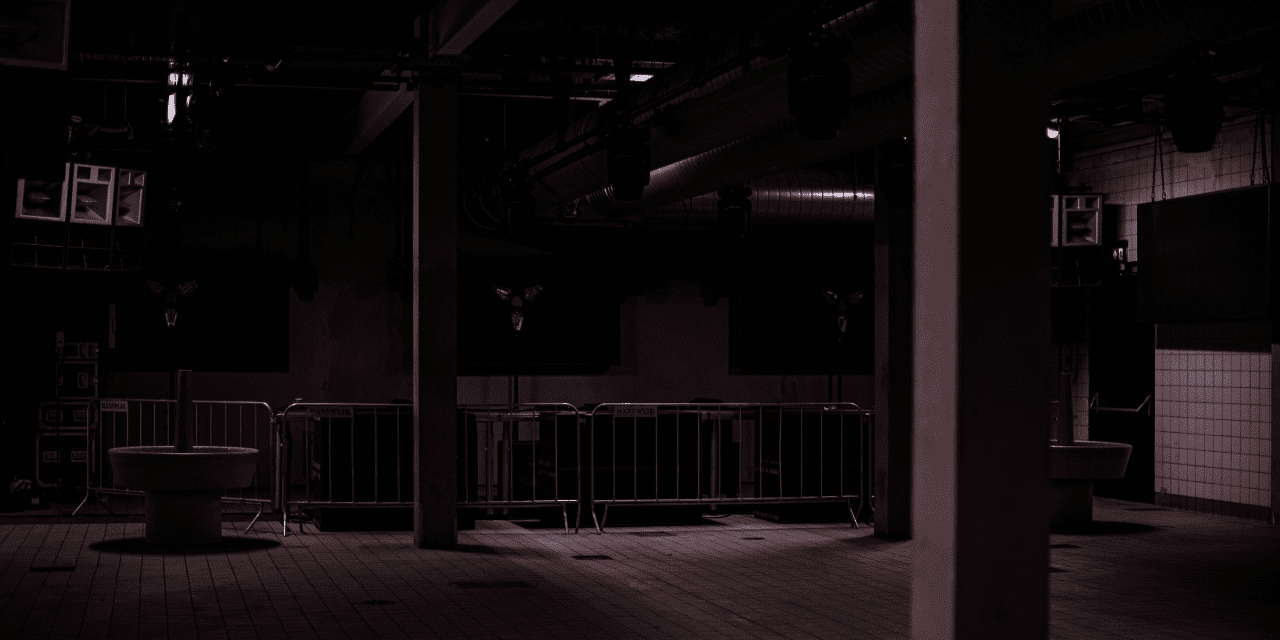On Saturday, April 13, Club WAS. will lend its characteristic industrial halls to an equally characteristic concept, Sudor. Latin for ‘sweat’, Sudor stands for filthy energetic music and a free physical atmosphere. With its concept, Sudor creates a space where time seems to stand still and the boundaries between past and present blur. This is true not only from a party-bubble perspective, but it’s also in the name: Sudor takes inspiration from the ancient Roman sudatorium, a ‘sweat room’, which was a kind of steam cabin and sauna in one. But Sudor isn’t the only concept that borrows from ancient history and mythology.
When I say ‘Antigone’, your mind might drift to the euphoric melodies of DJ Joris Voorn’s track, or perhaps you think of the French techno producer who adopted the alias ‘Antigone’ in 2010. However, ‘Antigone’ has its roots firmly planted in a completely different genre: In the fifth century BC, Greek playwright Sophocles wrote the tragedy ‘Antigone’, in which a brave girl defies royal decree to bury her brother, who is considered a traitor, with all the tragic consequences that follow.
While Voorn’s track ‘Antigone’ might seem unrelated, its description on YouTube suggests otherwise, stating that the track is a deliberate ‘positive’ counterpart to the Greek tragedy. Voorn’s own words about it are a bit less poetic: ‘The real story behind ‘Antigone’ is that it was made when I was on the plane with a serious hangover. The name was inspired by a billboard I saw on the way to the airport while leaving Greece after a gig.’ As amusing as this explanation is, it doesn’t sound like Voorn intended to pay homage to Greek mythology or take any real inspiration from the classical story. In contrast, the French techno does link his alias to the Greek mythology, stating in his Spotify bio that his alias is ‘named after the tragic daughter of Oedipus in Greek myth’. With that, he gives some credit to ancient history, but why exactly he chose this name remains guesswork. Immediately after this statement, his sound is described as ‘tough and funky’, perhaps this is also how he interpreted the classical rebel Antigone?
Greek tragedies continue to inspire nightlife, as evidenced by the Amsterdam event ‘Katharsis’, which is a Greek theatrical term for ‘(emotional) cleansing.’ That a night of partying is sometimes described as a complete cleansing is certainly no coincidence. While Katharsis’ parties may have faded into memory, the legacy lives on through throwback videos on their socials. Coincidentally (or not?), the latest video features DJ Legowelt ‘performing as his Greco-Roman cult alter ego: Gladio’. Despite the easy vibes of the music in this specific clip, we can imagine the thrilling mood he wants to evoke with the name, which is derived from the Latin word for ‘sword’, ‘death’, or – perhaps more obviously – ‘gladiatorial combat’.
In Utrecht, the spirit of Katharsis lives on through Sudor. At every Sudor event, the line-up is curated to keep bodies moving and energy levels rising. Standing still is simply not an option. For someone who has been to events where sweat dripped from the ceiling by the night’s end, the appeal of Sudor’s atmosphere is undeniable. It’s all about dancing until you can’t anymore in the bubble of the night. Club WAS.’ former life as a laundry room of the Werkspoorfabriek adds to the authenticity, with its bathroom tiles, old fountains, and locker room vibes setting the perfect stage for a night where ancient rituals meet with modern beats.
The electronic music scene thrives on evolution and experimentation. By pushing boundaries, experimenting with new sounds, and combining different concepts, DJs and producers offer a creative reinterpretation of antiquity. While my background in classical antiquity adds an extra layer of excitement for me, you don’t need to be well-versed in ancient history to appreciate the fusion of past and present in today’s events. Whether the connection is explicit or includes a more imaginative nod, it shows the timeless allure of ancient stories and cultures, reminding us that history isn’t just confined to textbooks: It lives on in the rhythm of the dance floor.
Words by Indira Huliselan | 22.03.2024
